Azerbaijan Detains Six Over ‘Coup Plot’ Blamed On Iran

As tension mounts between Iran and Azerbaijan, Baku says it has arrested six Iran-funded agents accused of a coup plot.

As tension mounts between Iran and Azerbaijan, Baku says it has arrested six Iran-funded agents accused of a coup plot.
According to the Interior Ministry, State Security Service and Prosecutor General's Office of Azerbaijan, the group is charged with trying to overthrow the government.
They claim the members of the group were recruited by Iranian special services. According to local media, the detainees, calling themselves “believers”, carried out pro-regime propaganda and religious radicalism through social networks.
The latest news reflects growing tensions between Baku and Tehran. Earlier in the week, Baku announced it had arrested four people in connection with the attempted assassination of a lawmaker who was shot and wounded last week.
Fazil Mustafa, a lawmaker who had been strongly critical of Azerbaijan's neighbor Iran, has been recovering in hospital after what the state security service described as a terror attack.
Relations between Azerbaijan and Iran, which has a large population of ethnic Azeris in its northwest, have been strained in recent months after Baku announced plans to open an embassy in Israel. Though Israel has had an embassy in Baku since the 1990s, it was a show of deepening ties for Baku to open an embassy in the Jewish state.
Iranian officials have accused Azerbaijan of allowing Israel to set up intelligence and military bases on its territory as an operational base against Iran, a claim Baku denies.
Meanwhile, in January, Azerbaijan closed its embassy in Tehran after what it called a "terrorist attack" that killed the embassy's head of security.
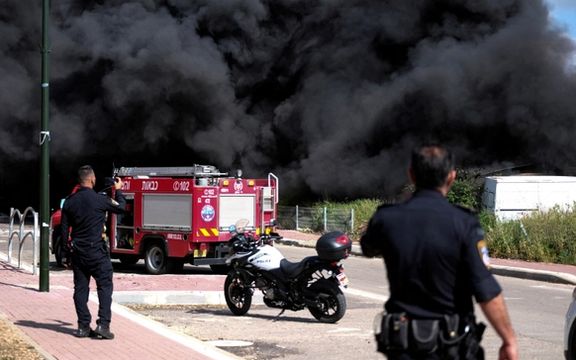
A barrage of rockets were fired on northern Israel Thursday in the worst such tensions since the 2006 war, which could lead to expanded conflict and involve Iran.
As of Thursday afternoon, the Israel Defense Forces (IDF) said so far, 34 rockets had been fired into Israel, 25 of which intercepted, with five landing in Israeli territory.
Though Hezbollah has not claimed responsibility for the attacks, the onslaught follows growing tensions with Iran.
An IDF spokesperson told reporters in late afternoon, that Israeli leaders will look into Hezbollah's involvement, although at this point the attacks appear to have been launched by Hamas or Palestinian Islamic Jihad. The spokesperson also said that Israel is "checking Iranian involvement."
He said: "Hezbollah probably knew about the attack as it was in south Lebanon, and Lebanon has a responsibility. We are looking into Iranian involvement."
The statement probably point to Israeli reluctance to blame Hezbollah outright, since that would mean pressure to retaliate against the well-armed, Iran-backed group and a wider war on two fronts for Israel.
In 2023, Israel has launched at least ten attacks on Iranian facilities and infrastructure in Iran, including killing major figures in the Iranian Revolutionary Guard Council.
Israel's Foreign Minister, Eli Cohen, warned the perpetrators "not to test Israel" as the rockets rained down on Thursday, warning of a harsh response.
Iran's Press TV, the voice of the regime, tried to distance its largest proxy from the rocket exchange, attributing it to "Palestinian factions, not Hezbollah", stating it was "retaliatory attacks from Lebanon on Israel following the Israeli regime's forces' aggression on al-Aqsa Mosque".
Tensions in Israel have mounted over the last two days as Hamas members barricaded themselves into the holy Al Aqsa mosque, leading to violent confrontations with Israel Police.
Hamas leader Ismail Haniyeh was in Beirut meeting with counterparts at Hezbollah just hours before the strikes were launched from Hezbollah controlled territory, suggesting a coordinated effort by the militia groups which deem Israel at its weakest point in years.
Israel has been bitterly divided by internal political debate over Prime Minister Netanyahu’s proposed reforms, which have seen three months of mass protest. In echoes of the Yom Kippur War of 1973, the barrage also came at the start of the Jewish holiday of Passover, when most of the country is at home with families.
Netanyahu has called a meeting of his top security advisors for an emergency session to take place Thursday evening, as the situation escalates across the border with Gaza, under Hamas control, Lebanon and at the Al Aqsa mosque.
The UN’s peacekeeping forces in southern Lebanon, UNIFIL, had been told to take cover in shelters as the two sides traded blows while residents in northern Israel are currently in shelters.
Story developing
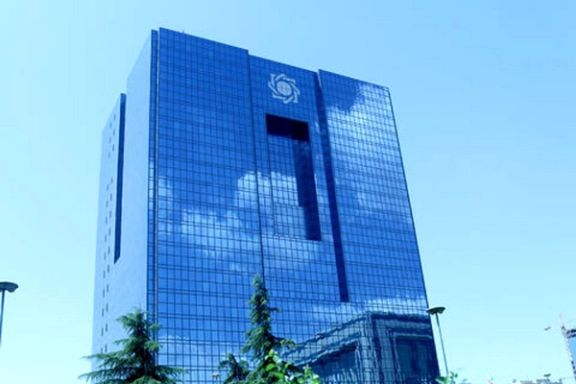
Chaos has ensued in Iran’s financial and currency markets as the government tries to restrict the sale of cash US dollars.
The Central Bank of Iran (CBI) issued a new directive in March to stop cash dollar sales by forex dealers and instead required people to open dollar accounts to deposit their foreign currencies.
Buying dollars had become a critical means of Iranians securing what money they have amidst biting sanctions and a plummeting local currency.
With annual inflation running at more than 50%, Iranians have been trying to protect the value of their savings by buying foreign currency or gold.
Moneychangers told Iran International that after the announcement, cash dollars have become scarce and banks are creating obstacles for people in opening foreign currency accounts.
Last month, the Central Bank said selected banks could sell foreign currency up to €5,000 to each Iranian annually at rates announced on the Iran Central Exchange (ICE) website, but it later lowered the cap from €5,000 to €2,000 as many in the market were reselling to earn extra money.
In February, as the Iranian currency began to fall to new lows, officials announcing that citizens will not be allowed to buy their annual share of foreign currency from official exchange bureaus. They also said that the government will stop providing dollars to banks and official dealers for that purpose.
Amidst the government’s failed attempts to control the exchange market, the rial was trading above 500,000 to the US dollar, and 550,000 to the euro on Thursday. One year ago the dollar traded at around 250,000 rials.
Ordinary people and businesses see the move as yet another dubious government scheme, typical of the state-controlled economy.
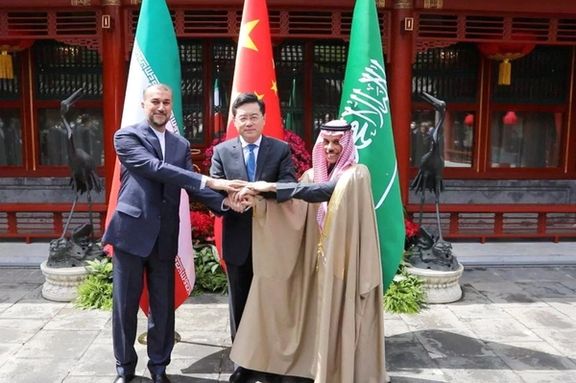
The foreign ministers of Iran and Saudi Arabia met in Beijing for the first formal meeting in more than seven years, after a China-brokered deal to restore ties.
Iran’s official news agency IRNA reported that a meeting of the two delegations took place and they issued a joint statement “on expanding relations and cooperation.”
Tasnim news agency affiliated with the Iran’s Revolutionary Guard reported that Foreign Minister Hossein Amir-Abdollahian and his Saudi counterpart Prince Faisal bin Farhan Al Saud discussed practical measures related to the re-opening of their embassies and consulates. They also exchanged views, Tasnim said, on “certain issues related to their bilateral relations,” without providing details.
Reuters reported that the two countries agreed to resume flights and bilateral visits of official and private sector delegations, in addition to facilitating visas for citizens, the statement said.
After years of hostility that fueled conflicts across the Middle East, Tehran and Riyadh agreed to end their diplomatic rift and re-open embassies in a major deal facilitated by China last month.
In brief footage broadcast on Iranian state TV on Thursday, bin Farhan and Amir-Abdollahian, greet each other before sitting down side by side.
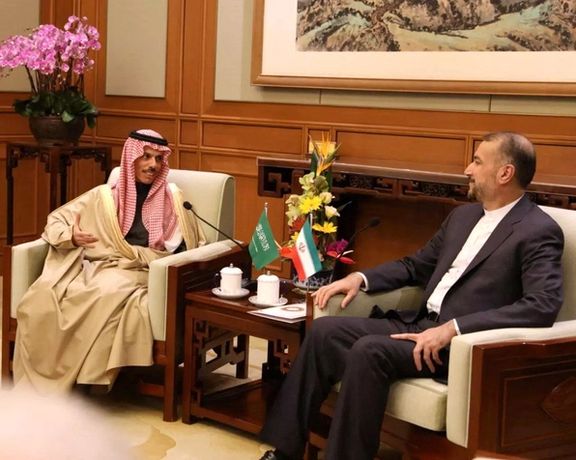
In March, China's President Xi Jinping helped broker a surprise deal between regional rivals Tehran and Riyadh to end a seven-year rift and restore diplomatic ties - a display of China's growing influence in the region.
In March, Xi spoke by phone with Saudi Crown Prince Mohammed bin Salman Al Saud about several issues.
Beijing's role in the breakthrough between Tehran and Riyadh shook up dynamics in the Middle East, where the United States was for decades the main mediator.
Iran’s regime that is shunned by the West and isolated politically and under US sanctions has heralded the revival of ties with Riyadh as a significant victory and a defeat for the United States in the region.
Critics in the US have blamed the Biden Administration for pushing Saudi Arabia toward China and restoring relations with Iran, by pursuing the restoration of the 2015 nuclear deal with Tehran and losing the trust of Saudi leaders as the great power in the region.
Saudi Arabia cut ties with Iran in 2016 after its embassy in Tehran was stormed by mob of hardliners supporters of the regime during a dispute between the two countries over Riyadh's execution of a Shi'ite Muslim cleric.
The kingdom then asked Iranian diplomats to leave within 48 hours while it evacuated its embassy staff from Tehran.
The relationship began worsening a year earlier, after Saudi Arabia and the United Arab Emirates intervened in the Yemen war, where the Iran-aligned Houthi movement ousted a Saudi-backed government and took over the capital, Sanaa.
For Saudi Arabia, the deal could mean improved security. The kingdom has blamed Iran for arming the Houthis, who carried out missile and drone attacks on its cities and oil facilities.
In 2019, Riyadh blamed a massive attack on Aramco oil facilities, which knocked out half of its oil output, directly on the Islamic Republic. Tehran denied those allegations.
With reporting by Reuters
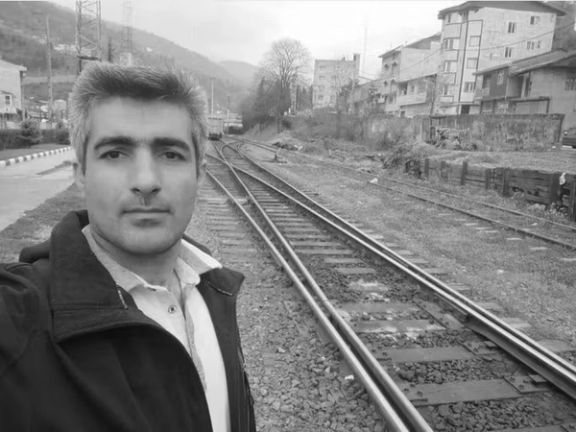
Security organs in Iran have arrested three family members of a victim of the nationwide protests that have rocked the country in September 2022.
Agents on Wednesday arrested the parents and a brother of Javad Heydari who was killed last September by the security forces of the Islamic Republic in a village near Qazvin west of Tehran.
Fatemeh Heydari, Javad’s sister, announced in a tweet that her parents and Mohammad, one of his brothers, were arrested on Wednesday.
The arrests come as Ruhollah Heydari, another member of the family, has been detained since Monday.
Javad Heydari's sister was also fired from her workplace, Iran’s Mapping Organization in March.
During the protests, ignited by the death in custody of 22-year-old Mahsa Amini, hundreds of people lost their lives and many more received permanent injuries.
The authorities not only failed to accept any responsibility, but put pressure on some of the victims' families who made statements against regime officials during funerals or on social networks.
According to Amnesty International, the Iranian authorities’ arbitrary arrests, intimidation and harassment of relatives of victims exposes their inconceivable cruelty and sinister attempt to cover up their crimes.
“The authorities have not only condemned families …to a lifetime of inconsolable sadness, but they have also inflicted extreme mental anguish upon them through cruel restrictions on burials, commemorations and relentless intimidation aimed at enforcing silence,” said Heba Morayef, Amnesty International’s Regional Director for the Middle East and North Africa.

New findings show that deaths caused by global warming in the Middle East and North Africa will increase exponentially, with Iran as the most "vulnerable" country in the region.
According to the research published by The Lancet journal, currently, the number of “deaths due to global warming in the Middle East is 2·1 per 100,000 people”. However, the region “will have experienced substantial warming by the 2060s with the potential to reach the annual heat-related deaths to 123·4 per 100,000 people”.
In Iran’s case, this number is currently 11 deaths per 100,000 people, which is five times the average of the Middle East, but it will reach 423 in the next four decades.
“This death rate would be reduced by more than 80% if global warming is limited to 2°C, [but] Iran currently has the highest heat-related death rate and will experience the greatest impacts between 2021 and 2100.”
According to the report, the Middle East is one of the most vulnerable parts of the world to global warming and climate change.
The report states that the number of annual deaths due to global warming in Iran is around 1,703 people meaning six times more than that of Saudi Arabia.
The most important cause of global warming is the emission of greenhouse gases. International statistics, including those of the International Energy Agency and the Global Carbon Project, show that Iran has the highest emission of greenhouse gases in the Middle East and is ranked sixth globally.